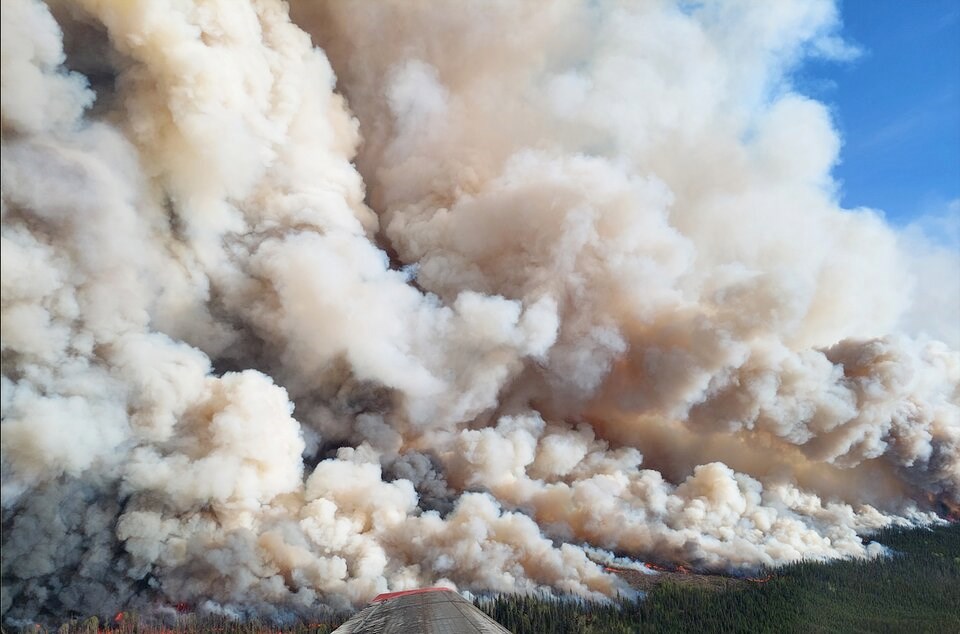April’s carbon tax hikes were as popular as a skunk at a garden party.
Everyday Canadians are already wrestling with persistent inflation and higher interest rates, stacked on top of unaffordable housing, stagnant real wages and declining per capita GDP.
Most premiers across Canada have read the room. They’ve called for a First Minister’s meeting to discuss carbon taxes and affordability. Prime Minister Justin Trudeau has challenged them to come up with something better.
At worst, this standoff will lead only to performative political posturing that pits environment against affordability.
At best, though, it’s an opportunity to rebalance Canada’s climate leadership with the needs of everyday people and families. To do that we must move past false dichotomies, stop settling for faulty math and start putting forward common sense solutions.
Climate leadership takes more than three words, but in the spirit of Spike the Hike and Axe the Tax, let’s start with Fix the Math and Stop the Fires.
“What gets measured gets managed” is a boardroom cliche for a reason – it’s true.
Equally, what doesn’t get measured often doesn’t get managed.
“Teaching to the test” skews incentives at the expense of both common sense and big picture thinking.
That’s what we do now when it comes to greenhouse gas emissions, both in official policies and in our popular understanding.
Imagine you’re trying to get in shape by counting calories.
But when you run out of healthy food in the fridge and have junk food delivered, you don’t count that. You start walking to work, but you don’t count that as exercise. You smoke a pack a day, but you don’t count that.
When BC Hydro imports a Site C or two worth of American energy to meet our power needs, we don’t count the fossil fuel emissions that come with those electrons.
When we build our economy by shipping our natural gas to places like China that would otherwise pump more smoky coal carbon into the atmosphere, we don’t get credit for exported emissions reductions. Instead, China gets the credit and we get the protests.
This, despite Article 6 of the Paris Agreement on climate change, which calls for measuring internationally transferred mitigation outcomes.
Canada’s pack-a-day smoking habit? Forest fires.
Wildfires threaten our communities, displace our people, damage our lungs, and cost us billions of dollars while increasing global GHGs.
Most people would be shocked to discover that in 2023 Canada produced 23 per cent of global wildfire carbon emissions – a 480 megatonne carbon bomb detonated into the shared global airshed.
Wildfires emit greenhouse gases on par with entire industries, yet Canada retroactively stopped counting those emissions toward our UN pledges in 2017. That improved our emissions on paper, but it didn’t change the reality in the atmosphere – or for people in affected communities.
We have made ourselves willing prisoners of a half-finished and therefore dangerously arbitrary GHG counting system. While others brazenly manipulate the current system, it doesn’t measure Canada’s reality, doesn’t serve our interconnected environmental and economic interests, and doesn’t maximize our ability to help address global climate change in reality, not just on paper.
Who says we have to accept this increasingly incoherent reality? Let’s stand up for Canada, fix the math and rethink our approach with a comprehensive review and a common sense approach to climate change.
Economists can and should examine the effectiveness of all the tools in the climate toolkit. But let’s be honest: carbon tax has become more a weaponized political wedge than a substantial policy debate. Nibbling around the margins won’t convince an increasingly skeptical public.
Carbon tax has become a sacred cow symbol used by progressives to claim the high moral high ground and reap environmental votes. That makes strategic sense given a recent Research Co. finding that 77 per cent of British Columbians are concerned about global climate change.
The same poll found 83 per cent of British Columbians are concerned about household energy costs becoming too expensive. For conservatives and populists, the carbon tax has become a prism to focus the frustrations of beleaguered Canadians who are tired of being talked down to while they struggle under the yoke of an affordability crisis.
Contrary to alarmist rhetoric and wedge politics, rethinking the carbon tax doesn’t necessarily mean abandoning our moral responsibility on the environment. In fact, it will be both environmentally and politically crucial for conservatives to lay out an alternative path.
Back to wildfires: Research Co. also found that 84 per cent of British Columbians are concerned about forest fires, with 69 per cent worried fires will affect the community where they live.
Why not make a full court press to reduce wildfire emissions, given all the benefits to the economy, health care and addressing climate change?
For years, British Columbia has absurdly spent nine times as much on fighting fires as we do on preventing them. Fixing the math on GHG emissions so we count what counts would help build the case for major public and private investments in new approaches to fire prevention and reduction. These efforts should put a particular focus on supporting climate resilience and adaptation for rural communities that often feel overtaxed, underserved and unconsidered in the grand plans of governments.
What gets measured gets managed and public opinion is sending a signal loud and clear. It’s time to shift gears, apply common sense and build a new climate plan that is set up for success, not engineered for division.
So, premiers, here is one better option: Axe the Tax, Fix the Math, and Stop the Fires.
Gavin Dew is a businessman and former BC Liberal leadership candidate who lives in Kelowna.





